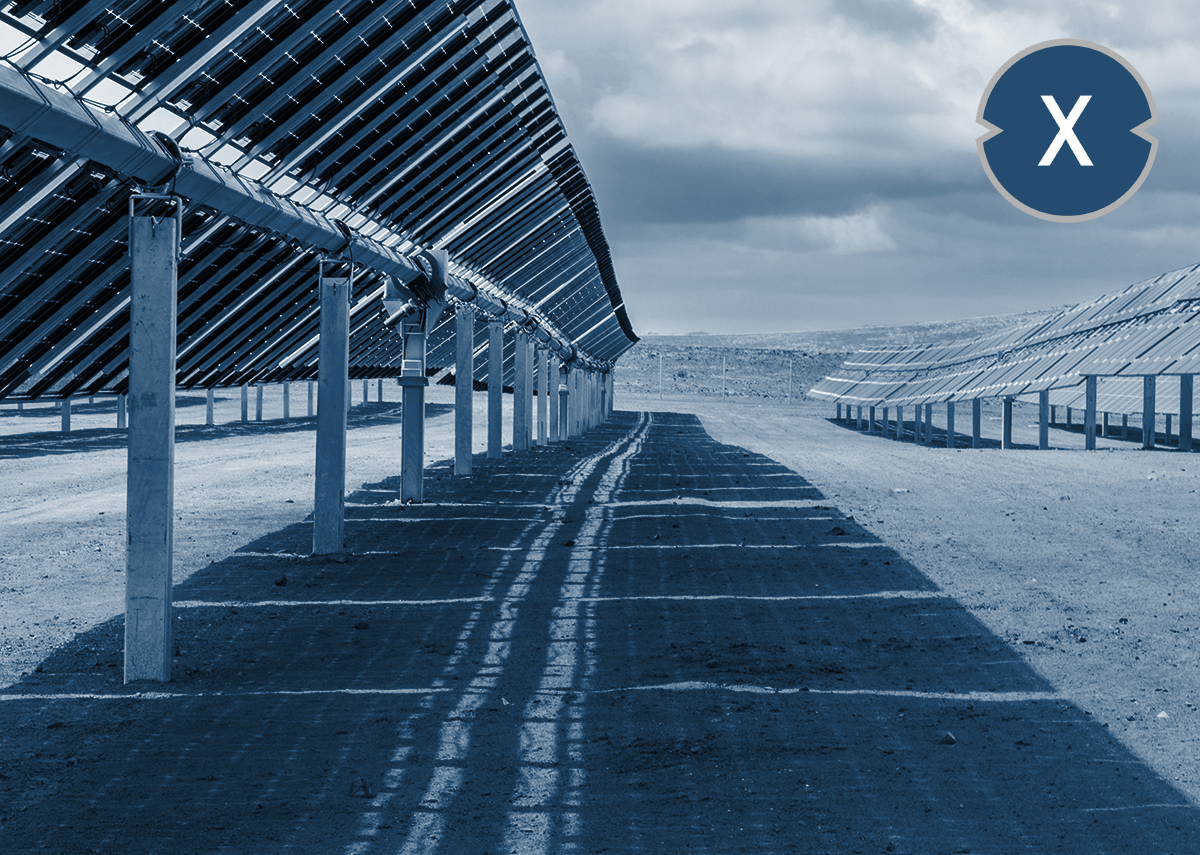With glass modules with bifacial cell technology, the light is captured on both the front and back of the module. Increasing the use of light increases the efficiency of the module. Up to 360 Wp total power can be achieved via the active rear of the module (290 Wp only at the front / total 320 - 360 Wp).
The efficiency gain depends on the radiation situation (atmosphere and background).
- Low/medium reflective surfaces (e.g. tiled roof, grass); Installation distance to the surface at least 40 cm
- Well-reflective surfaces (e.g. flat roof with gray foil, sand); Installation distance to the floor 60 cm – 1.5 m
- Very good reflective surfaces (e.g. glaciers, snow); Installation distance to the floor greater than 1.5 m
Bifacial/Bifacial derivation
In botany, bifacial refers to a specific category of leaves on a plant. This can be named according to its origin and the arrangement of the tissue. One speaks of a bifacial leaf if it has a top and bottom surface, the leaf primordia emerge from both sides and the tissue is arranged in a specific structure.
The term bifacial is derived from the Latin for bi (two, two) and facies (external appearance, appearance).
The main advantages
Additional power generation gains: Compared to P solar cells, N solar cells tend to significantly increase efficiency. Bifacial solar cells will have a broader application perspective due to the bifacial generation capacity and higher system efficiency, and are particularly suitable for snowier areas and distributed generation systems such as roofs, fences and sound barriers.
The cell backside efficiency can reach more than 19%, and the incident backlights can be used to improve the generation capacity of the system, with the unit area capacity increase up to 10%~30%.
With the glass module with bifacial cell technology, the light is captured on both the front and back of the module. Increasing the use of light increases the efficiency of the module. Up to 360 Wp total power can be achieved via the active rear of the module (290 Wp only at the front / total 320 - 360 Wp).
The efficiency gain depends on the radiation situation (atmosphere and background).
Free space system with bifacial solar modules example
Roof system with bifacial solar modules example
Bifacial solar modules overhead substructure example
📣 The right and suitable solar modules for industry, retail and municipalities
Everything from a single source, solar module solutions specifically tailored to your photovoltaic system! You refinance or counterfinance into the future with your own electricity generation.
🎯 For solar engineers, plumbers, electricians and roofers
Advice and planning including a non-binding cost estimate. We bring you together with strong photovoltaic partners.
👨🏻 👩🏻 👴🏻 👵🏻 For private households
We are positioned across regions in German-speaking countries. We have reliable partners who advise you and implement your wishes.
- Plan photovoltaics for warehouses, commercial halls and industrial halls
- Industrial plant: Plan a photovoltaic open-air system or open-space system
- Plan solar systems with photovoltaic solutions for freight forwarding and contract logistics
- B2B solar systems and photovoltaic solutions & advice
Solar module advice with Xpert.Solar – help & tips for the right and suitable solar module
I would be happy to serve as your personal advisor.
You can contact me by filling out the contact form below or simply call me on +49 89 89 674 804 .
I'm looking forward to our joint project.
Xpert.Digital – Konrad Wolfenstein
Xpert.Digital is a hub for industry with a focus on digitalization, mechanical engineering, logistics/intralogistics and photovoltaics.
With our 360° business development solution, we support well-known companies from new business to after sales.
Market intelligence, smarketing, marketing automation, content development, PR, mail campaigns, personalized social media and lead nurturing are part of our digital tools.
You can find out more at: www.xpert.digital – www.xpert.solar – www.xpert.plus


